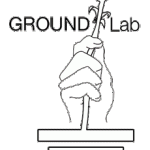The second major contextual situation that has influenced our company is the shift of manufacturing out of the US. With this shift, the US market is starting to lack the influence of American middle class spending habits. The general consuming structures of Fordism will apply less and less to the US market and therefore the R&D, design, and arts industries will also either move their nexuses to China or drastically change shape. This is because what the “creative class” is making product for is the language of the US consumer, and the current product language will be less and less profitable as the buying power of the people who speak the language decreases as the world's consumer market shifts.
Read part 1 of this series, Practical prototyping and the history of technological development
This shift will dictate a new emphasis of development process for the U.S. and related markets, one that is closer to what is recognized as being used by decentralized social systems and the developing world. This process utilizes customized solutions on a more individualized basis, or what is called Jua Kali, a Kiswahili term meaning “fierce sun,” which has been referred to in Kenya's informal sector of the economy.
For companies to work in this new environment, they need to be flexible in their processes and techniques of identifying, fabricating, and combining various tech and social platforms to create tailored solutions for each challenge and business as a whole. The key challenge is in fact not technological but social: we have the technical skill to build enough nuclear reactors to cleanly power the world, the agricultural skills to produce enough food for every living person, and the technical foresight to take care of their hazardous components in order to make them both sustainable. The problem then isn't just technical advancement but how the technology interacts with social behaviors. The scope of human social organization defines the scope of our technologies, and the most successful technologies create a link between sustainable social patterns and the physical changes a technology produces. In other words, the most successful technologies are the ones people can use.
What open source structures and techniques can create
The structure of open source information has created a production and design system that emphasizes labor and applied knowledge instead of physical possession and information retention as the basis of ownership. Property creates theft; labor creates capital.
What this model has done is start to reshape the rhythm of production from large leaps to ubiquitous small steps and has redefined which services and products consumers are being billed for. Red Hat and other Linux server-based companies are the hallmark examples of this new business model, which uses an open source product and charges the user for the continuous implementation and support of that product. Open source development creates a constant progression of small technological patches instead of radical platform changes. This new rhythm of small advances allows for a business model based on the labor associated with implementing the technology instead of ownership of copyrights and licensing fees. The consumer is now charged for the labor involved in the maintaining and further development of these tools, instead of being charged for all the overhead costs associated with the development between versions of the product.
This form of working is self-perpetuating, where open information causes labor to be emphasized, creating an unspoken non-compete agreement between parties, since what everyone is remunerated for is the application of the knowledge and not for the rights to the knowledge itself. This process is creating resource communities where individuals and organizations are getting together to form information pools that mimic the resources found in universities and corporate structures. These communities appear to have greater flexibility in addressing problems and development issues based on the cross-section of use. For example, when was the last time you searched a problem on the Internet and the tech manual came up instead of a forum listing?
To facilitate this overall business structure and its growth, legal work has to be done on outdated statutes, to formulate and improve the methods in which small businesses can operate using these new management tools. Because increased sociability and knowledge is not enough, there is also a need for a more informed and relevant legal environment. Just as Carel van Schaik, the Dutch primatologist, has observed about orangutans in Sumatra:
“One thing we know is that being close to others isn't enough. Highly tolerant sociability is important - that you can be relaxed next to others. You need to be able to focus on what your neighbor is doing and not worry about whether he is going to sneak something or beat up on you.1”
Edited by Benedetta Piantella, co-founder of Ground Lab, LLC






Comments are closed.